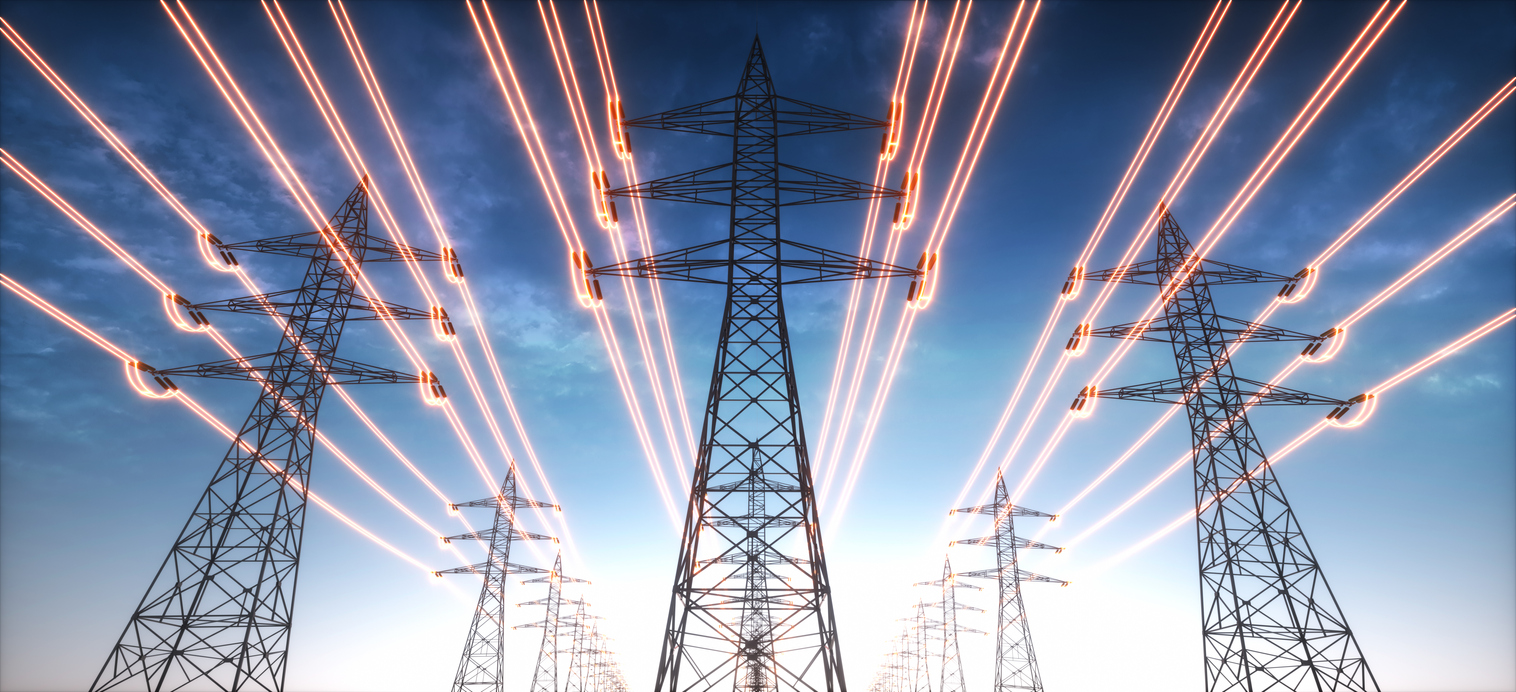Exploring the Challenges and Solutions of Transmission of Electricity in Nigeria with Wigmore Trading
Exploring the Challenges and Solutions of Transmission of Electricity in Nigeria with Wigmore Trading
Nigeria, a country with untapped potential in the energy sector, faces numerous challenges when it comes to the transmission of electricity. In this blog post, we will delve into these obstacles and explore innovative solutions with Wigmore Trading. Join us as we uncover the complexities of Nigeria’s electrical grid and discover how advancements in technology are paving the way for a brighter future.
Introduction to the challenges of electricity transmission in Nigeria
Introduction to the Challenges of Electricity Transmission in Nigeria
Nigeria, being one of the most populous countries in Africa with a population of over 200 million people, faces numerous challenges when it comes to electricity transmission. The country is heavily reliant on hydroelectric power and natural gas, which account for about 90% of its total electricity generation. However, despite having significant potential for renewable energy sources such as solar and wind power, these resources are underutilized due to various challenges associated with the transmission and distribution of electricity.
One of the major challenges facing electricity transmission in Nigeria is inadequate infrastructure. The existing transmission infrastructure is outdated, poorly maintained and unable to meet the increasing demand for electricity. This has resulted in frequent power outages, voltage fluctuations, and overall poor quality of supply. In addition, the vast geographical landscape and scattered population make it difficult to reach remote areas with reliable power supply.
Another challenge is financial constraints faced by the Nigerian government-owned utility companies responsible for electricity transmission. These companies have limited access to funds needed for infrastructure development and maintenance due to inefficiencies in their operations and high debt levels. As a result, they are unable to invest adequately in new technologies that could improve efficiency and reliability of power transmission.
Furthermore, theft and vandalism are significant issues affecting electricity transmission in Nigeria. Theft of transformers, cables, meters, and other electrical equipment is rampant due to high poverty rates and illegal connections made by consumers who cannot afford official tariffs. This not only results in financial losses but also disrupts the flow of electricity through the grid system.
The issue of lack of skilled manpower also poses a challenge to efficient electricity transmission in Nigeria. Due to insufficient training programs and low wages offered by government-owned utility companies, there is a shortage of qualified personnel with technical expertise required for operating complex systems such as the national grid.
Political interference has been identified as a factor hindering progress towards improving electricity transmission in Nigeria. The frequent changes in government policies and regulations have caused instability in the sector, making it difficult for investors to have confidence and invest in the development of new transmission infrastructure.
Nigeria faces numerous challenges when it comes to electricity transmission, which has a direct impact on the country’s economic growth and development. Understanding these challenges is crucial for implementing effective solutions that can lead to a more reliable and sustainable power supply for all Nigerians. In the following section of this article, we will explore some potential solutions to address these challenges and improve electricity transmission in Nigeria.
Brief overview of Wigmore Trading and their role in the energy sector in Nigeria
Wigmore Trading is a leading company in the energy sector of Nigeria, specializing in the supply and distribution of electrical equipment and materials. The company was established in 2004 with a vision to provide high-quality products and services to meet the growing demands of the Nigerian market.
Over the years, Wigmore Trading has become a prominent player in the energy sector, with a strong presence across various regions of Nigeria. Their extensive range of products includes transformers, switchgears, cables, meters, and other essential components used in electricity transmission and distribution systems.
One of their key roles in the energy sector is providing reliable and efficient solutions for power transmission. As Nigeria faces significant challenges in its electricity transmission network, Wigmore Trading has been at the forefront of addressing these issues through their products and services.
One major challenge faced by Nigeria’s electricity transmission system is outdated infrastructure. Many components used in power transmission are outdated or damaged due to years of neglect and lack of maintenance. This results in frequent power outages and voltage fluctuations that affect businesses and households across the country.
Wigmore Trading works closely with government agencies responsible for electricity generation, transmission, and distribution to upgrade this aging infrastructure. They supply modern equipment that meets international standards to ensure a stable flow of electricity from generation plants to consumers.
Another crucial role played by Wigmore Trading is promoting renewable sources of energy such as solar power. With an increasing demand for sustainable solutions worldwide, there has been a growing interest in harnessing solar energy as an alternative source for electricity generation.
Wigmore Trading offers a wide range of solar panels, inverters, batteries, chargers, and other related accessories required for setting up off-grid or hybrid solar systems. By promoting renewable energy options like solar power,
the company not only contributes towards reducing carbon emissions but also helps combat frequent blackouts caused by inadequate conventional power generation.
In addition to their contributions towards improving Nigeria’s overall energy sector performance, Wigmore Trading also plays a vital role in supporting local businesses and creating employment opportunities. They have a network of dealers and distributors across the country, providing them with products at competitive prices and enabling them to offer quality services to their customers.
Wigmore Trading has established itself as one of the key players in the energy sector of Nigeria. With their commitment to providing high-quality products and services, they are playing a significant role in addressing the challenges faced by Nigeria’s electricity transmission system. Their continuous efforts towards promoting renewable energy sources also reflect their dedication towards building a sustainable future for the country’s energy sector.
Current state of electricity transmission in Nigeria
Nigeria, being the most populous country in Africa, has experienced a rapid growth in its electricity demand over the years. However, this demand has not been met due to various challenges faced by the transmission sector of the power industry. In this section, we will take a closer look at the current state of electricity transmission in Nigeria.
The power sector in Nigeria is primarily dominated by three major players – generation, transmission and distribution companies. The role of the transmission company is to transport electricity from the generating stations to distribution networks which then deliver it to end consumers. The Transmission Company of Nigeria (TCN) is responsible for overseeing and managing this process.
Unfortunately, the current state of electricity transmission in Nigeria is plagued with several challenges that hinder its efficiency and reliability. One major issue is an inadequate infrastructure that cannot meet the growing demand for electricity. The existing grid system was designed decades ago when the population and energy consumption were significantly lower than they are now. This outdated infrastructure has not been properly maintained or upgraded, leading to frequent breakdowns and blackouts.
Another challenge facing electricity transmission in Nigeria is poor maintenance culture. Due to lack of funds and proper management systems, maintenance activities are often neglected resulting in equipment failures and outages. This also includes insufficient investment in new technologies such as smart grids which can help improve grid stability and efficiency.
Moreover, vandalism and theft of electrical equipment have become common occurrences that further contribute to disruptions in power supply across the country. These criminal acts not only cause financial losses but also put lives at risk due to electrocution hazards.
Furthermore, there is a significant gap between installed capacity and actual generation due to gas supply constraints faced by many thermal plants across the country. This leads to limited availability of power for transmission despite having potential sources of energy.
As a result of these challenges, Nigerians experience frequent power outages which affect their daily lives as well as businesses operating within the country. The unreliable power supply also hinders economic growth and development, making it difficult for the country to attract foreign investments.
The current state of electricity transmission in Nigeria is not satisfactory and requires urgent attention. In the next section, we will explore some potential solutions to these challenges and how Wigmore Trading is working towards improving the transmission sector in Nigeria.
Key challenges faced by Wigmore Trading in improving electricity transmission
Wigmore Trading, a leading supplier of electrical equipment in Nigeria, has been at the forefront of efforts to improve electricity transmission in the country. However, this task has not been without its challenges. In this section, we will explore the key challenges faced by Wigmore Trading in their mission to improve electricity transmission in Nigeria.
1. Infrastructure Deficit:
One of the biggest challenges faced by Wigmore Trading is the infrastructure deficit in Nigeria’s power sector. The existing transmission network is outdated and inadequate to meet the growing demand for electricity. This results in frequent power outages and low voltage supply, which greatly hinders economic growth and development.
2. High Cost of Equipment:
Another significant challenge faced by Wigmore Trading is the high cost of electrical equipment needed for transmission projects. As a result of import duties and other taxes, the price of these essential components is much higher than international standards. This makes it difficult for companies like Wigmore Trading to procure quality equipment at competitive prices.
3. Lack of Skilled Manpower:
The successful implementation of any project depends on having a skilled workforce to carry out tasks efficiently. However, Nigeria’s power sector suffers from a severe shortage of qualified engineers and technicians who are trained specifically for transmission projects. This poses a significant challenge for companies like Wigmore Trading as they struggle to find skilled manpower that can handle complex transmission projects effectively.
4. Inadequate Maintenance Practices:
In addition to infrastructure deficits, another major problem that plagues Nigeria’s power sector is inadequate maintenance practices. The lack of proper maintenance leads to frequent breakdowns and system failures, resulting in disruptions in electricity supply. This issue poses a challenge for Wigmore Trading as they try to ensure reliable and uninterrupted power supply through their distribution networks.
5.Lack Of Government Support:
Despite government initiatives aimed at improving electricity access and reliability across Nigeria, there have been challenges with policy implementation and support towards private sector involvement in transmission projects. The lack of government support and delays in policy implementation have made it difficult for companies like Wigmore Trading to secure necessary approvals and funding for their projects.
The challenges faced by Wigmore Trading in improving electricity transmission in Nigeria are numerous and complex. However, the company remains committed to finding solutions and working towards a more efficient, reliable, and sustainable power grid for the country’s economic growth and development.
– Insufficient infrastructure and outdated technology
Insufficient infrastructure and outdated technology have been significant challenges in the transmission of electricity in Nigeria. The country has struggled to keep up with the growing demand for electricity due to rapid industrialization and population growth. As a result, inadequate infrastructure and outdated technology have hindered the efficient transmission of electricity across the country.
One of the major issues faced by Nigeria’s power sector is insufficient transmission infrastructure. The existing transmission network is not robust enough to handle the increasing demand for electricity, resulting in frequent blackouts and load shedding. This lack of adequate infrastructure can be attributed to years of underinvestment in the power sector, leading to an aging grid system that is unable to meet current demands.
Moreover, most of Nigeria’s transmission lines were built decades ago and are now outdated, making them prone to frequent breakdowns and failures. These outdated technologies are not only unreliable but also inefficient, resulting in high energy losses during transmission. According to a report by the Nigerian Electricity Regulatory Commission (NERC), energy losses through inadequate infrastructure reached 20% in 2019 alone.
Another critical factor contributing to insufficient infrastructure is vandalism and sabotage. Criminal activities such as theft of electrical equipment, including cables and transformers, have become rampant in some areas, leading to disruptions in power supply. These criminal acts not only cost millions of dollars but also pose a significant threat to public safety.
The combination of insufficient infrastructure and outdated technology has resulted in poor voltage regulation, affecting the quality of electricity supply across Nigeria. Voltage fluctuations can damage electrical appliances like refrigerators, air conditioners or even cause fires if left unattended.
To address these challenges effectively, there is an urgent need for massive investments in upgrading Nigeria’s transmission infrastructure using modern technologies like smart grids. Smart grid technology uses advanced sensors and communication systems that enable real-time monitoring and control over power distribution networks. This would help reduce energy losses significantly while improving overall efficiency.
In addition, there should be stricter laws against vandalism and sabotage, with harsh penalties for offenders. Also, the government needs to collaborate with private companies like Wigmore Trading to provide technical support and resources to upgrade the existing transmission infrastructure.
Nigeria’s power sector is facing a significant challenge due to insufficient infrastructure and outdated technology. However, with proper investments and the adoption of modern technologies, these issues can be overcome, leading to a more reliable and efficient transmission of electricity across the country.
– Political and economic instability
Political and economic instability has long been a major challenge for the transmission of electricity in Nigeria. The country has a history of political turmoil, with frequent changes in government and civil unrest, which have greatly hindered progress in the energy sector.
One of the main issues faced by Nigeria is the lack of investment in infrastructure due to economic instability. The country’s economy heavily relies on oil exports, making it vulnerable to fluctuations in global oil prices. This has led to budget constraints and limited resources for developing reliable electricity transmission systems. As a result, existing infrastructure is often outdated and insufficient to meet the growing demand for electricity.
Moreover, political instability has also played a significant role in hindering the growth of the energy sector. Frequent changes in government policies and regulations have created uncertainty for investors, leading them to shy away from investing in large-scale projects. This has resulted in a lack of new developments and upgrades to existing transmission systems.
The combination of economic and political instability has also affected maintenance and repair efforts. With limited funding available, routine maintenance is often neglected, resulting in frequent breakdowns and power outages. This not only affects industries but also impacts daily life for citizens who rely on electricity for basic needs such as lighting, cooking, and communication.
The challenges posed by political and economic instability are further compounded by corruption within the energy sector. It is no secret that Nigeria ranks high among countries with widespread corruption, which has had a detrimental effect on progress in the energy sector. Funds allocated for development projects are often misappropriated or embezzled, further delaying progress towards improving electricity transmission.
In order to address these challenges effectively, it is crucial for the Nigerian government to prioritize stability both politically and economically. A stable economy will attract foreign investments while political stability will provide certainty for investors looking to enter or expand their operations within the country.
Furthermore, there needs to be a concerted effort towards tackling corruption within the energy sector through strict enforcement of laws and regulations. This will not only ensure that allocated funds are utilized appropriately but also promote transparency and accountability in the sector.
Political and economic instability remain significant challenges for the transmission of electricity in Nigeria. It is imperative for the government to take proactive measures to address these issues in order to pave the way for a more reliable and sustainable energy supply for its citizens.
– Lack of proper funding and investment
One of the biggest challenges facing the transmission of electricity in Nigeria is the lack of proper funding and investment. This has been a major hindrance to the development and maintenance of efficient power transmission infrastructure, leading to frequent power outages and limited access to electricity for many Nigerians.
The Nigerian government has traditionally been responsible for providing funding for power transmission projects through its national budget. However, due to competing priorities and fiscal constraints, there has been a chronic underfunding of the power sector in Nigeria. This has resulted in a significant backlog of much-needed infrastructural upgrades and expansion projects.
Additionally, the cost recovery mechanism in place for electricity tariffs is not sufficient to cover the high capital costs associated with building new transmission lines and substations. As a result, investors are hesitant to invest in these projects as they fear low returns on their investments.
Another factor contributing to the lack of proper funding is corruption and mismanagement within the Nigerian energy sector. Reports have shown that funds allocated for power projects have often been embezzled or misappropriated, further exacerbating the funding gap.
Furthermore, attracting foreign direct investment (FDI) into Nigeria’s energy sector has also proven challenging due to various factors such as political instability, security concerns, inadequate legal framework, and inconsistent policies. These factors make investors wary of committing their resources towards long-term projects that require substantial capital investment.
To address these challenges, there needs to be a concerted effort from both government bodies and private entities. The government must prioritize budgetary allocations towards improving Nigeria’s energy infrastructure while also implementing stricter measures against corruption within the energy sector.
Attracting FDI will require creating an enabling environment by addressing issues such as policy consistency, regulatory transparency, and providing guarantees against political risks. Additionally, there should be incentives for private investors such as tax breaks or subsidies that can help attract more capital into this critical sector.
Moreover, alternative sources of financing such as public-private partnerships (PPP) and project financing can also be explored. These models have been successful in other developing countries, and their implementation in Nigeria could help bridge the funding gap for transmission projects.
Addressing the lack of proper funding and investment is crucial to improving the transmission of electricity in Nigeria. It requires a collaborative effort from all stakeholders to prioritize energy infrastructure development and create an attractive investment climate for both local and foreign investors.
Solutions proposed by Wigmore Trading to address these challenges
Wigmore Trading, a leading distributor of electrical equipment in Nigeria, has recognized the challenges faced by the transmission of electricity in the country. In order to address these challenges and improve the efficiency of power transmission, Wigmore Trading has proposed various solutions that can bring about positive changes in the Nigerian electricity sector.
One of the main challenges faced by transmission companies in Nigeria is inadequate funding. This leads to a lack of investment in infrastructure and equipment, resulting in frequent breakdowns and outages. To tackle this issue, Wigmore Trading has suggested partnering with international organizations and investors to secure funds for upgrading existing infrastructure and building new power plants. This would not only improve the reliability of power transmission but also attract more foreign investments into the country.
Another major challenge is poor maintenance practices. Many times, transmission lines are not properly maintained or repaired due to limited resources or negligence, leading to unscheduled outages. To address this issue, Wigmore Trading recommends implementing regular maintenance schedules and investing in high-quality equipment that requires less maintenance. Additionally, training programs should be conducted for technicians to ensure they have adequate knowledge and skills for proper maintenance.
Inefficient energy management is also a significant problem facing Nigeria’s electricity sector. The lack of effective energy management systems results in wastage and overloading of the grid. As a solution, Wigmore Trading suggests implementing smart grid technology that allows better monitoring and control of energy distribution networks. This technology can detect faults instantly and redirect power flow accordingly, reducing downtime caused by outages.
Furthermore, inadequate data management systems hinder efficient planning for future demand requirements. To overcome this challenge, Wigmore Trading recommends investing in advanced data management systems that can accurately predict future demand based on historical data analysis. This will help authorities plan ahead for upgrades or expansions required to meet increasing demand.
Thefts from electric cables are another significant issue affecting power transmission in Nigeria. The loss incurred due to such criminal activities puts additional financial strain on transmission companies. To combat this problem, Wigmore Trading suggests using anti-theft devices and smart meters that can detect and shut off power supply in case of any tampering. This would not only reduce losses but also ensure the safety of consumers.
Wigmore Trading has proposed various solutions to address the challenges faced by electricity transmission in Nigeria. By implementing these solutions, it is possible to improve the efficiency and reliability of power transmission in the country, ultimately benefiting both businesses and consumers.
– Upgrading infrastructure and implementing new technology
Upgrading infrastructure and implementing new technology are crucial steps in improving the transmission of electricity in Nigeria. Despite being one of Africa’s largest economies, Nigeria still faces major challenges in its power sector, with inadequate infrastructure and outdated technology being some of the main hindrances. In this section, we will delve into the current state of Nigeria’s power infrastructure and discuss potential solutions for upgrading it.
At present, Nigeria’s national grid has a total installed capacity of 12,522 MW (megawatts), but only about 8,000 MW is available due to various operational challenges. This falls short of meeting the country’s growing demand for electricity, which is estimated to be around 25,000 MW. One of the major reasons for this discrepancy is the poor state of the country’s transmission infrastructure. Most of the equipment used in transmitting electricity across different regions is old and outdated, resulting in high transmission losses and frequent system failures.
To address these challenges, upgrading existing transmission lines and substations should be a top priority. This involves replacing old equipment with newer and more efficient technologies that can handle higher voltages and reduce energy losses during transmission. Some examples include using High Voltage Direct Current (HVDC) systems instead of traditional alternating current (AC) systems as they have lower energy losses over long distances. Additionally, deploying smart grid technologies can help monitor energy consumption patterns in real-time to identify areas where improvements can be made.
Another key aspect when it comes to upgrading infrastructure is ensuring proper maintenance and upkeep of existing facilities. Regular inspections must be conducted to identify any potential issues before they become major problems that could lead to outages or system failures.
In addition to upgrading existing infrastructure, implementing new technology is also critical for improving Nigeria’s power sector. For instance, integrating renewable energy sources such as solar panels or wind turbines into the grid can help meet increasing demands while reducing reliance on fossil fuels. Moreover, utilizing advanced metering systems can help manage electricity consumption and reduce wastage.
Upgrading infrastructure and implementing new technology are crucial steps in overcoming the challenges faced by Nigeria’s power sector. With proper planning, investment, and maintenance, these solutions can significantly improve the transmission of electricity across the country. It is imperative for both the government and private sector to work together towards modernizing Nigeria’s power infrastructure to ensure a reliable and sustainable energy supply for its citizens.
–
The Challenges of Electricity Transmission in Nigeria
Nigeria, like many developing countries, faces significant challenges when it comes to the transmission of electricity. Despite being Africa’s largest economy and a major oil producer, Nigeria still struggles with providing reliable power supply to its citizens. According to the World Bank, only 54% of Nigerians have access to electricity, leaving millions without access to this essential resource.
One of the main challenges facing electricity transmission in Nigeria is the inadequate infrastructure. The existing grid system is outdated and unable to meet the growing demand for electricity. This results in frequent power outages and blackouts, causing disruptions in businesses and households. The lack of proper maintenance also leads to frequent breakdowns and technical faults that further exacerbate the problem.
Another significant challenge is the high rate of theft and vandalism of electrical equipment. Many Nigerians resort to illegal connections or tampering with meters to avoid paying for their electricity usage, resulting in revenue losses for utility companies. Vandalism of power lines and transformers is also prevalent due to the high value of copper found in them. These criminal activities not only affect the reliability of power supply but also pose a safety hazard for both citizens and workers.
Furthermore, there is a huge disparity between rural and urban areas when it comes to access to electricity. While many urban areas enjoy relatively stable power supply, rural communities often have little or no access at all. This creates an unequal distribution of resources and hinders economic development in these marginalized areas.
Solutions for Improving Electricity Transmission
To address these challenges, various solutions have been proposed by both the government and private sector players like Wigmore Trading. One crucial step towards improving transmission infrastructure has been investments in upgrading existing grids and constructing new ones where needed. This includes implementing smart grid technology that enables better monitoring and control over energy flow.
Moreover, initiatives such as metering programs have been implemented by utility companies to reduce revenue losses from illegal connections. The use of prepaid meters has also helped to create a fairer billing system and ensure that consumers pay for the electricity they use.
Collaborations with international organizations and private sector companies have also been crucial in improving transmission infrastructure in Nigeria. For instance, Wigmore Trading has partnered with international manufacturers to supply high-quality electrical equipment, including transformers and cables, to utility companies in Nigeria. This ensures that the country has access to reliable and durable equipment for efficient power transmission.
While challenges exist, various solutions are being implemented to improve the transmission of electricity in Nigeria. With continued investments and collaborations, it is hoped that the country will overcome these obstacles and provide its citizens with stable and accessible power supply for economic growth and development.







Comments are closed.